Exploring China's Morning Delicacies
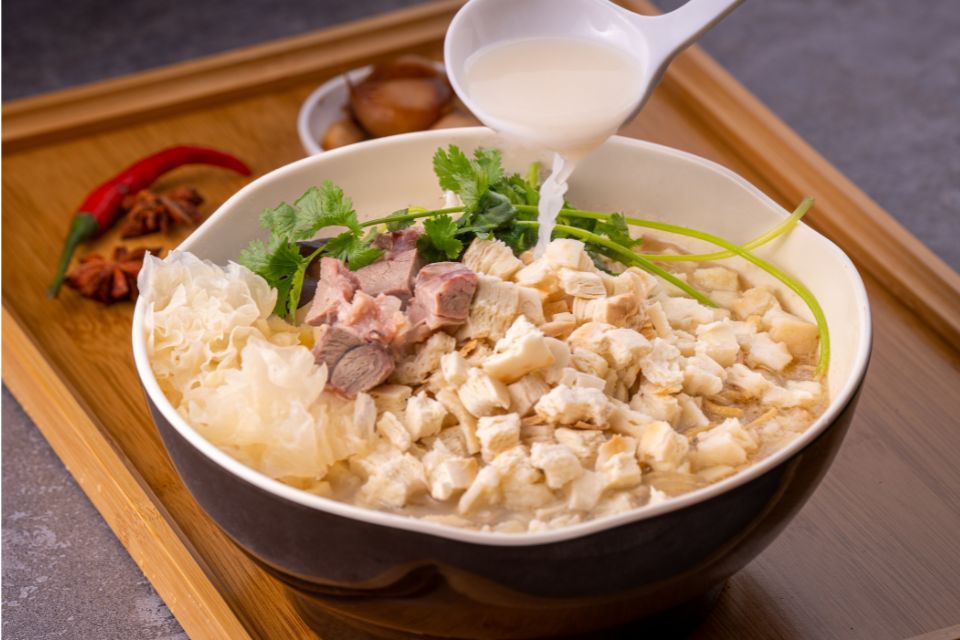
A cup of coffee, milk with cereal, or bread with butter and jam… These are the standard breakfast combinations across continental Europe, eatsimple, quick, and efficient. Yet for a Chinese person, something always seems to be missing. It turns out that what many Chinese living in Europe long for most is the aroma of street breakfasts wafting through the neighborhoods back home.
A leisurely morning stroll through any corner of China - whether on a bitterly cold northern winter day or a gently warming southern dawn - reveals an air filled with enticing aromas.
In Northwest China, breakfast is all about hearty, substantial warmth. At bustling street stalls on busy corners, you might first be captivated by a steaming bowl of spicy meatball soup. Imagine tender, bouncy beef meatballs, seasonal vegetables, and a thick, starchy gravy slowly blended into a broth that has been simmered to perfection from beef bones. The rich, thick liquid locks in the deep flavors of the bones, the freshness of the meat, and the sweetness of the vegetables, coating every ingredient evenly. Paired with a crispy, baked flatbread, each spoonful delivers an overwhelming sense of satisfaction and warmth, even against the biting chill of the wind.
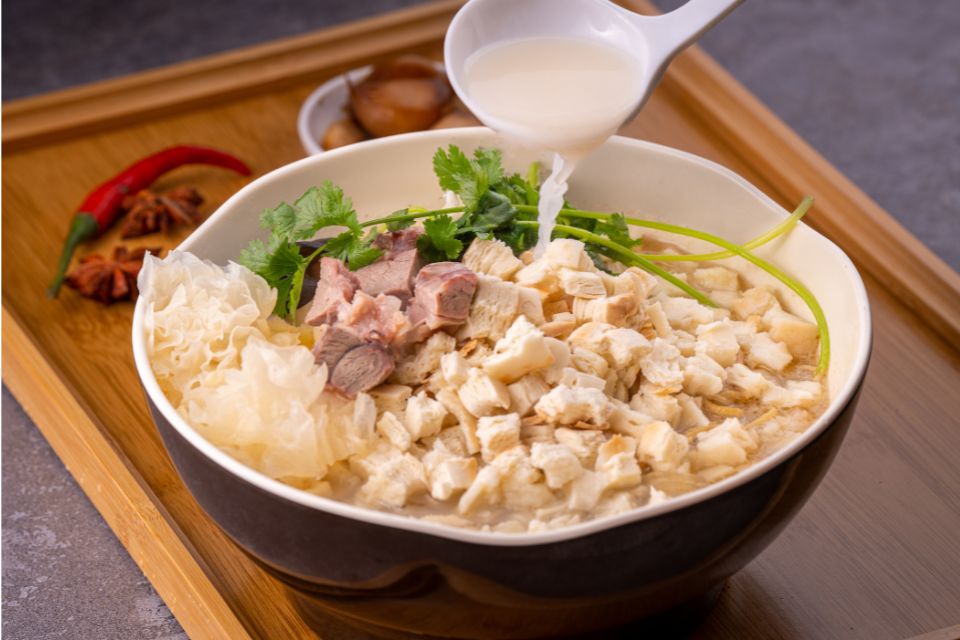
On the streets of Tianjin, the allure of jianbing guozi (a traditional Chinese pancake sandwich) is equally irresistible. Picture a thin mung bean and grain pancake cooked on a hot griddle until crispy, with an evenly spread layer of egg, wrapped around a piece of crunchy youtiao (fried dough stick) or small crispy fried dough twists. The pancake is then complemented by fermented bean curd, various sauces, and seasonings that come together in a rolled-up treat with distinct layers of texture and flavor, an unforgettable burst of homey warmth. 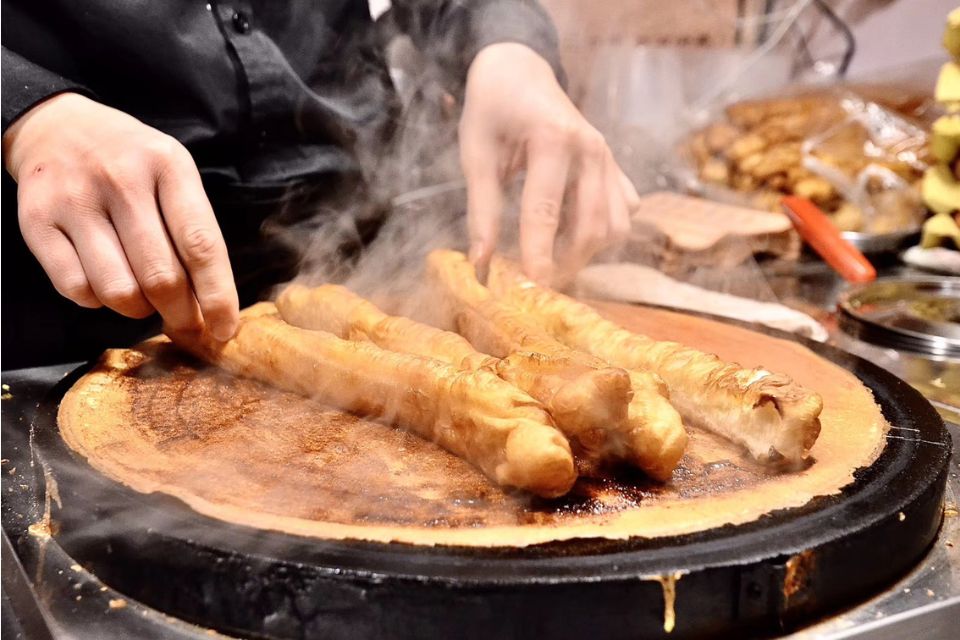
Meanwhile, another northern favorite stands out: tofu pudding. Celebrated for its smooth and delicate texture, vendors expertly ladle bowls of silky tofu pudding, drizzling them with a special savory sauce, then sprinkling crisp pickled vegetables and crushed peanuts, finishing with a few fresh sprigs of cilantro. With every spoonful that melts on your tongue, the unique flavors, rich and savory with a hint of refreshing brightness, unfold gradually, adding a touch of warmth and vitality to the morning.
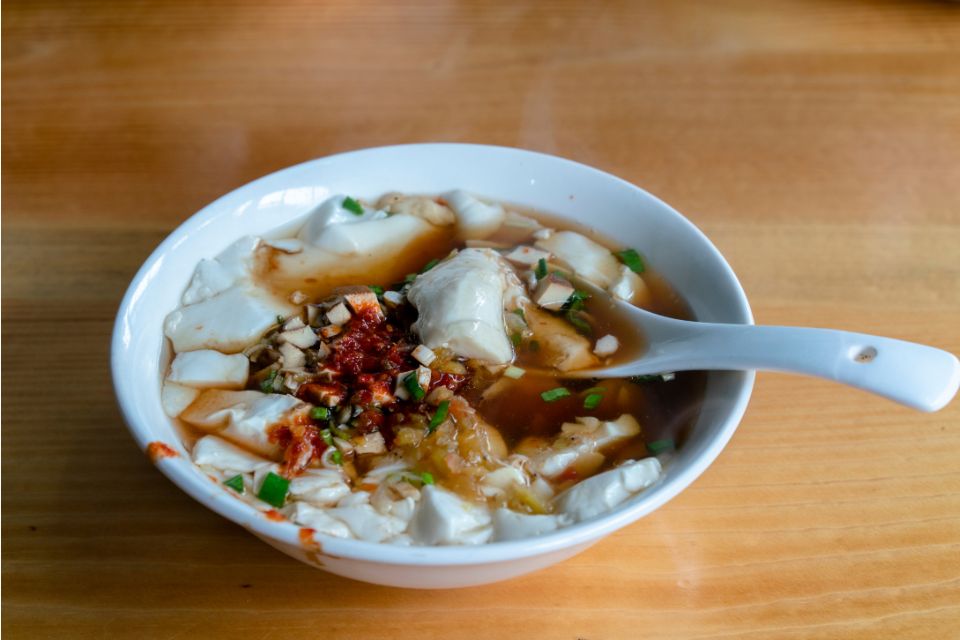
In central China, straddling the mighty Yangtze River, Wuhan offers its own signature breakfast: hot dry noodles. In the early morning, as the first rays of sunlight grace Jianghan Road, long queues form in front of hot dry noodle stalls. A bowl of these noodles, tossed with a special sesame paste, a mildly spicy sauce, and fresh scallions, perfectly retains the chewy texture of the noodles while infusing them with robust flavors that instantly awaken the dormant taste buds. For the people of Wuhan, hot dry noodles are not only a daily source of energy but also a cherished symbol of the city, imbued with warmth and historical memories.
Heading southwest, the culinary scene continues to captivate. Sichuan’s dandan noodles are famous for their spicy, savory kick, while Chongqing’s xiaomian (small noodles) win hearts with their simple yet pure flavor. A bowl of Chongqing xiaomian features al dente noodles immersed in a broth crafted from chili oil, Sichuan pepper powder, and minced ginger and garlic, then tossed with scallions and pickled vegetables. The result is an invigorating mix of spicy heat and a subtle tang, a true reflection of the passionate, vibrant life in this mountain city.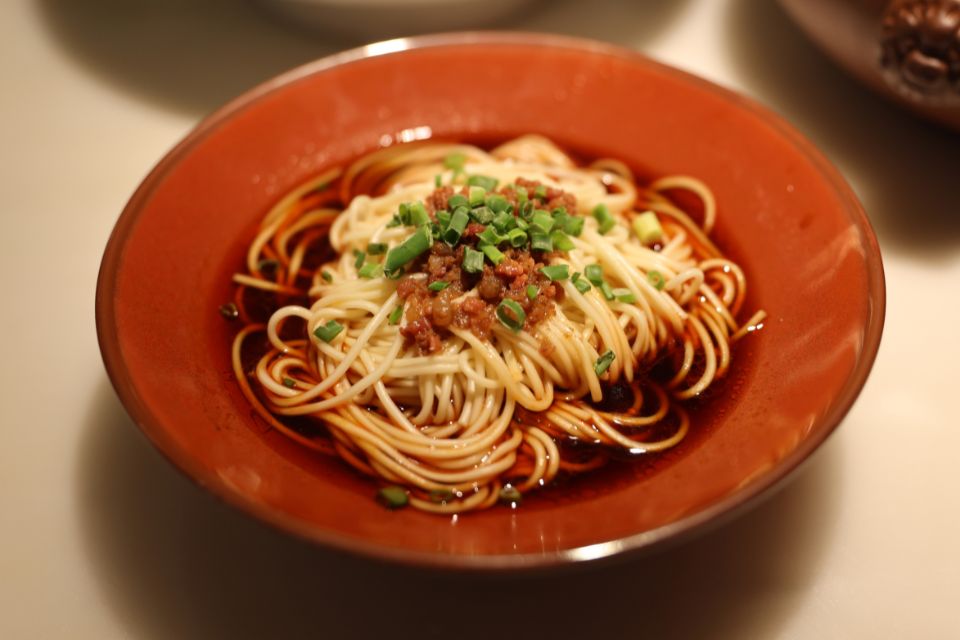
In Guangdong, the morning experience extends beyond popular street snacks like rice noodle rolls. Here, a unique dim sum culture thrives. Early in the morning, bustling tea houses are filled with lively chatter as guests gather around ornate tables to sample an array of exquisite dim sum, shrimp dumplings, siu mai, char siu bao, sticky rice chicken, steamed pork ribs in black bean sauce, chicken feet, and many other delicacies. Each dish is a masterpiece of color, aroma, and flavor, and when paired with a pot of fragrant tea, they not only delight the palate but also become a cherished time for friends and family to connect. This tea house ritual epitomizes the Guangdong pursuit of culinary perfection while offering a relaxed, social experience that enriches busy lives with a sense of leisure and charm.
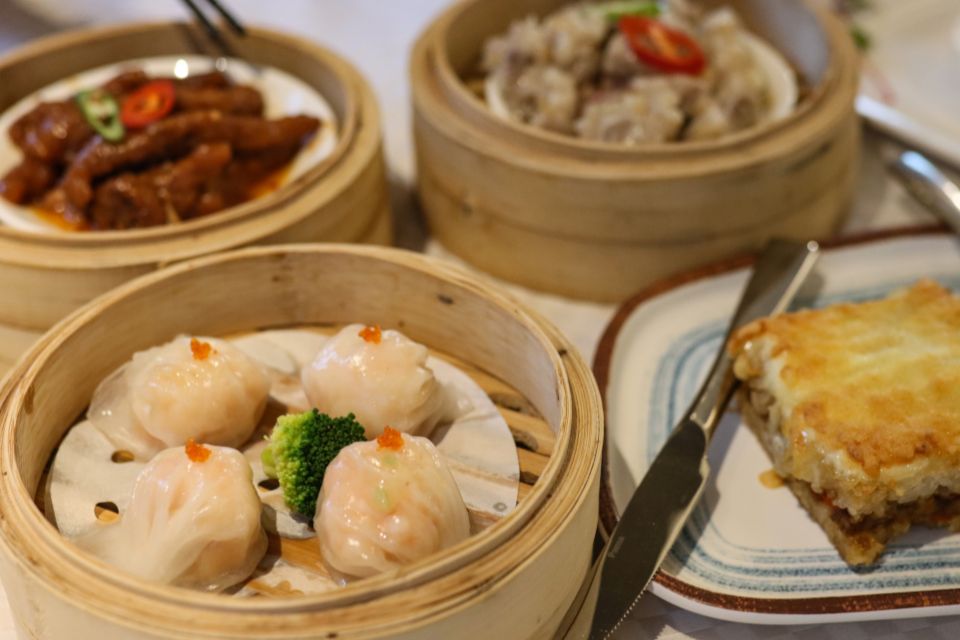
In the water towns of Jiangnan, the early market presents another treasure: soup dumplings neatly arranged in bamboo steamers. Their thin skins encase a burst of savory soup that unfolds with every bite, especially when dipped in a few drops of aromatic vinegar and ginger. Meanwhile, in Fujian, breakfast takes on a distinctive character where seafood plays an indispensable role. A popular combination is the pairing of Dingbianhu (a rice flour batter poured around the side of cooking wok to form a thin noodle, then scraped into a stock to simmer and served in seafood broth.) with hai li bing (oyster cakes). The delicate texture of Dingbianhu perfectly contrasts with the golden, crispy oyster cake, and when enjoyed alongside a bowl of rich, sweet peanut soup, it adds a gentle note of satisfaction to the morning.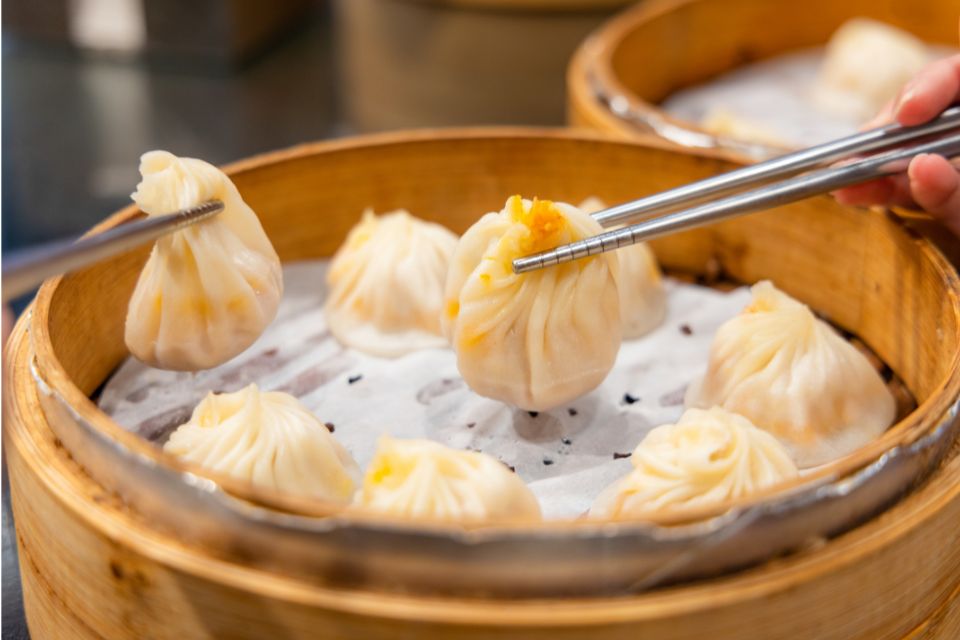 Chinese breakfast culture is not merely about a delightful culinary experience; it is a lifestyle and a cultural heritage passed down through generations. Every dish hides within it the unique regional customs and the stories of countless lives. Whether it is the bustling northern street stalls or the leisurely tea houses and morning markets of the south, Chinese breakfasts transform the simplest ingredients into extraordinary expressions of life.
Chinese breakfast culture is not merely about a delightful culinary experience; it is a lifestyle and a cultural heritage passed down through generations. Every dish hides within it the unique regional customs and the stories of countless lives. Whether it is the bustling northern street stalls or the leisurely tea houses and morning markets of the south, Chinese breakfasts transform the simplest ingredients into extraordinary expressions of life.
If you’re weary of the simple, quick fare of a continental breakfast, consider embarking on a journey to China. Wander through its lively morning markets, pass by one breakfast stall after another, and immerse yourself in the flavors that have been lovingly cultivated by history, regional character, and heartfelt emotion. Let this grand feast of culture and cuisine infuse every day with boundless energy and delightful surprises.